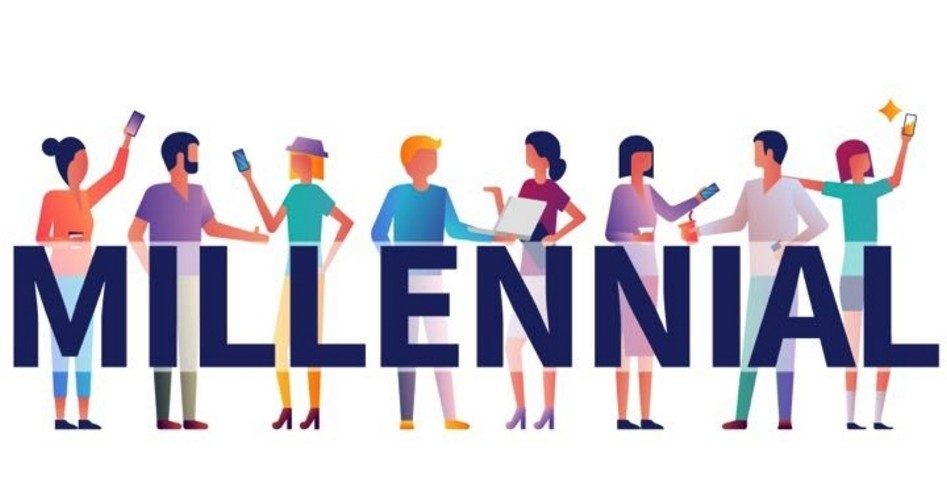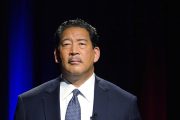
Podcast: Play in new window | Download ()
Subscribe: Android | RSS | More
While campaigning in Las Vegas this past weekend, former Vice President Joe Biden, currently the front-runner for the Democratic nomination for president in 2020, disputed the prevailing view that the younger generation are in favor of turning America into a socialist country.
In his State of the Union message earlier this year, President Donald Trump insisted that the United States would “never” be a socialist country, and his potential opponent in next year’s presidential race seemed to agree with him.
“This is not a hit on Bernie [Sanders], but this is not a generation of socialists.” Sanders is an avowed democratic socialist, and a registered Independent, but is seeking the Democratic Party nomination for president, as well. In 2016, Sanders almost defeated eventual Democratic nominee Hillary Clinton, and received strong support from younger voters. For example, in the Iowa caucuses of that year, Sanders was reported to have garnered a whopping 85 percent of the votes of caucus attendees ages 30 and younger.
Biden, however, took issue with the contention that millennials are overwhelmingly socialists, arguing, “The vast majority, they want rational policy. I don’t think they’re looking for a radicalization of who we are and what we do.”
The former vice president explained that young people are concerned about the growing power of corporations, but he contended that they understand the Constitution and also understand that consensus has to be reached in politics.
It is clear that Biden is attempting to distance himself from the more openly radical personalities in the Democratic Party, such as Sanders, Senator Elizabeth Warren of Massachusetts, Senator Kamala Harris of California, and New York Representative Alexandria Ocasio-Cortez, who is a member of the Democratic Socialists of America. This is probably because Biden understands that, whatever millennials in the Democratic Party think, the general election electorate will probably reject an avowed socialist.
What is not so clear is Biden’s assertion that under-30 Americans are not a “generation of socialists.”
One argument for Biden’s position could be that younger Democrats were voting against Clinton and her image of corruption as well as voting for Sanders.
Even if that is conceded, however, the case is that younger Americans actually are more open to the term socialism, even if they may be ignorant of what all that actually means.
In response to the success of Sanders in 2016, a national poll by Reason-Rupe produced results that should be alarming to any American who hopes that Trump is right when he declared that America will never be a socialist country. Fifty-three percent of 18- to 29-year-olds viewed socialism favorably. In contrast, only a fourth of Americans over 55 had a favorable opinion of socialism. In another poll, the YouGov survey, only about one-third of respondents under 30 had a favorable opinion of capitalism.
The lowest favorability opinion toward socialism came in the age group 55-64, in which only 23 percent thought socialism was a good thing.
These polling results would make it appear that Biden is not correct in his assertion that younger American adults are not a generation of socialists.
But why would younger American adults have such a favorable view of socialism? First of all, these younger people have probably not heard any arguments against socialism, even to the extent of explaining what socialism actually is. A CBS/New York Times poll found that a mere 16 percent of millennials could give the textbook definition of socialism as government ownership of the means of production — that the government owns all businesses. When younger Americans say they favor socialism, they are most likely thinking that it is government providing “free stuff.” That is certainly part of socialism, but what these young supporters of socialism do not understand is that all that “free stuff” comes at the expense of liberty. Once the government becomes the provider of goods (by first taking it from those who earned those goods), the state becomes the parent, and the citizen like a child.
In a broader sense, a more complete definition of socialism would include government wealth transfer programs. After all, Karl Marx, the author of The Communist Manifesto, said that he and his fellow socialists were for “from each according to his abilities, to each according to his needs.” In reality, socialism would include government ownership of business, but it would also include the government having enough control over the economy to the point that it can largely dictate to businesses what they can and cannot do. In addition, being able to take property from those who earned it, and redistributing that wealth to those who did not earn it, would fulfill Marx’s desire of “from each according to his abilities, to each according to his needs.” In his classic book, The Law, the French philosopher Frederic Bastiat, a staunch opponent of socialism in that country, described such redistribution of wealth as “legal plunder.” No matter the variety of socialism being discussed, it leads to more government control.
But when these “young skulls full of mush,” as radio commentator Rush Limbaugh often describes them, are asked to respond to the definition of socialism as government running businesses, support for socialism drops considerably. In fact, in the Reason poll, millennials actually favored a free market economy over a government-managed economy by a margin of 64-32 percent.
What is the cause of this widespread ignorance? It is likely that public schools (and many private schools, for that matter) say very little about socialism, one way or the other. They rarely make any case for free market economics in any case. When millennials hear about “socialism,” they tend to associate it with countries such as Denmark, Sweden, and Norway — countries that have never been any threat to the United States — rather than countries such as Cuba, Venezuela, and China.
Not only are younger people not taught what socialism is, they are also rarely taught the case for the free market, in school, or anywhere else. To them, the only economic options available are either a social safety net run and funded by the government, or an economy by and for corporate tycoons, the “evil” corporate entities. They simply do not understand the power and the morality of the free market.
Few understand that it is government policies that have caused much of what these young people see as problems, such as high tuition rates, expensive healthcare, and increasing prices. But when it is explained that even if all the wealth in the country was confiscated from the so-called rich, it would still not pay for all the “goodies” being promised, and that they themselves would have to pay onerous tax rates to fund socialism, along with the vaguely defined “rich,” support for wealth-transfer programs drops considerably.
In short, when Biden asserts that younger voters are not a “generation of radicals,” he is probably correct — if the truth of the consequences of socialism were explained to them. But as of now, the truth of socialism is not being explained to the millennials, especially that aspect of socialism known mostly as “welfare,” and its effect of increasing government control over the population.
Taking on the task of educating the millennials is a challenge to those Americans who want to ensure that Trump’s prediction — that America will never be a socialist country — is correct. This is a task undertaken by The New American magazine and its parent company, The John Birch Society, on a daily basis. Those Americans who fear America becoming a socialist country should strongly consider subscribing to the print version of The New American, and contacting The John Birch Society for material to share with not only younger Americans, but all Americans.
Image: Anastasiia_New / iStock / Getty Images Plus
Steve Byas is a college history instructor and author of History’s Greatest Libels. He can be contacted at [email protected]



